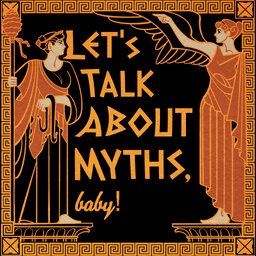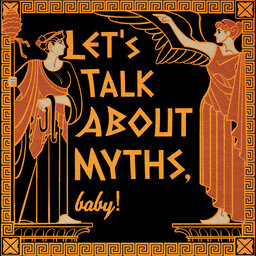You Can Learn All Greek Myth Has to Offer... & the Father Still Devours His Son
Liv re-listens to the very first episode of the show, plays it back to you and breaks it down to add more detail, context, corrections, and to just... bask in the wonder of seven years ago Liv and her view on the mythology. Help keep LTAMB going by subscribing to Liv's Patreon for bonus content!
CW/TW: far too many Greek myths involve assault. Given it's fiction, and typically involves gods and/or monsters, I'm not as deferential as I would be were I referencing the real thing.
Attributions and licensing information for music used in the podcast can be found here: mythsbaby.com/sources-attributions.
 Let's Talk About Myths, Baby! Greek & Roman Mythology Retold
Let's Talk About Myths, Baby! Greek & Roman Mythology Retold


